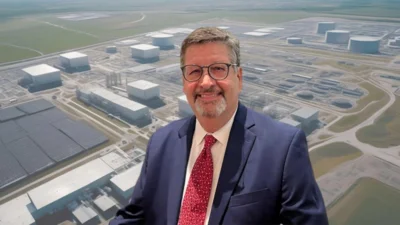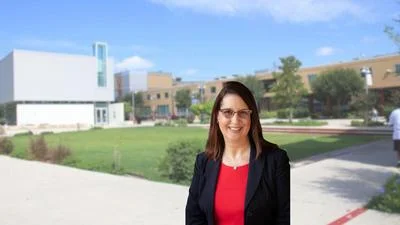A new renewable energy project in Texas is being subsidized by taxpayers and the subsidies are affecting the state's competitive market, one analyst believes.
BayWa r.e. completed construction on its 250 megawatt wind farm, the Amadeus Wind project, in December. It consists of 96 GE wind turbines on approximately 25,000 acres of federal, state and private property, according to the company's statement.
The wind farm is in Rotan, northwest of Abilene. The company said it "has begun selling power into the grid and will generate enough clean, renewable energy to meet the electricity needs of more than 74,800 homes annually. Amadeus is the largest onshore wind project completed to date in BayWa r.e.’s global portfolio."
The company said "over the lifetime of the plant, it will provide millions of dollars in tax benefits to the local community. The wind farm will also reduce the need for power generated from fossil fuels and will keep over 648,000 metric tons of carbon dioxide greenhouse gases from being released into the atmosphere each year."
Taxpayers in Rotan Independent School District in Fisher County will be subsidizing BayWa r.e.'s wind farm, and the school has approved the subsidies.
The Texas comptroller's website shows the annual tax levy would have been $2.4 million, but with the incentive of $2.1 million subsidized by taxpayers BayWa r.e. will pay $284,000 in taxes for the next 10 years.
One analyst says Texas encourages investments for wind and solar projects.
"The market structure in our state does many things to encourage the investments and the deployment of renewables — both wind and solar," Charles McConnell, executive director of the Center for Carbon Management in Energy and Sustainability at the University of Houston, told the Houston Republic.
Wind energy in Texas has grown for numerous reasons.
The reward for production and investment tax credits allows investors to fund renewable expansions with a quick return on the financial backing, McConnell told the Houston Republic. McConnell is a former assistant secretary at the U.S. Department of Energy and has 35 years' experience on the private sector in the energy industry.
McConnell told the Houston Republic that to get tax credits, producers using renewables can offer their electricity at a loss and even pay for their electricity to be utilized during high-production times to guarantee they get tax credits. This has caused economic problems for some companies.
In addition, the Houston Republic reported that although residents can enjoy competitive electricity rates, power bills do not reflect how much of state taxes are being used to pay for that generation. Without government subsidies, wind and solar would not be profitable.
Another controversy could be the need for more landfill space in the Sweetwater area as wind turbines cannot be recycled.
Bloomberg News reported that the aging blades cannot be recycled or repurposed and then end up in landfills.
"Tens of thousands of aging blades are coming down from steel towers around the world and most have nowhere to go but landfills," Bloomberg reported. "In the U.S. alone, about 8,000 will be removed in each of the next four years..."





